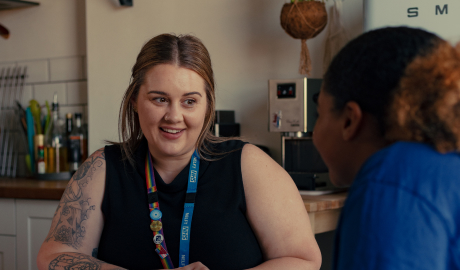
We are nurses.
We are changing lives.
No two days are the same in nursing – it’s one of the most dynamic and rewarding roles within the NHS. And with ongoing training and the support of your team, you’ll be able to make it exactly what you want it to be.

Get your free step-by-step guide to getting into nursing
Sign up to our email guide for more about nursing and where it can take you, routes in, and how to write a stand out application.
At school or college?
Discover where a nursing career could take you and how to get started.
Looking to change careers?
See how others made the switch and find out how to take those first steps.
Returning to nursing?
Let’s get you back to the job you love – we’re here to support you, every step of the way.
We have four areas of specialism
Find out which one might be right for you; adult, children’s, learning disability or mental health nursing.